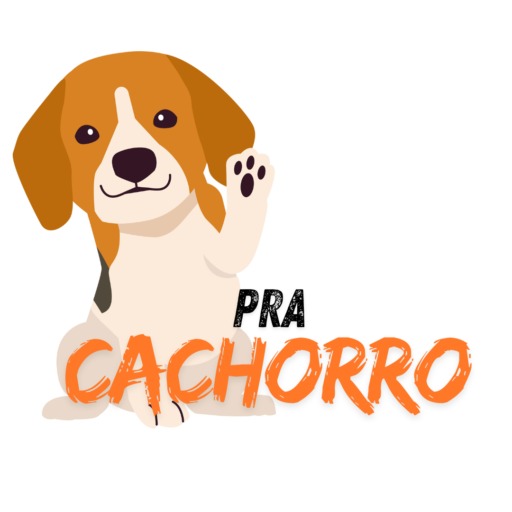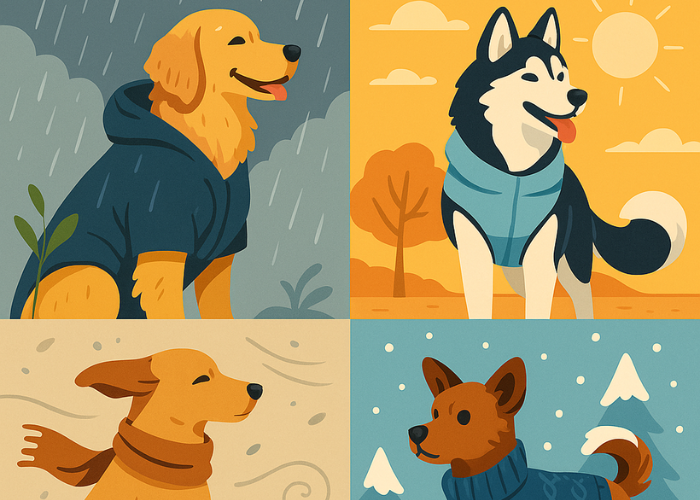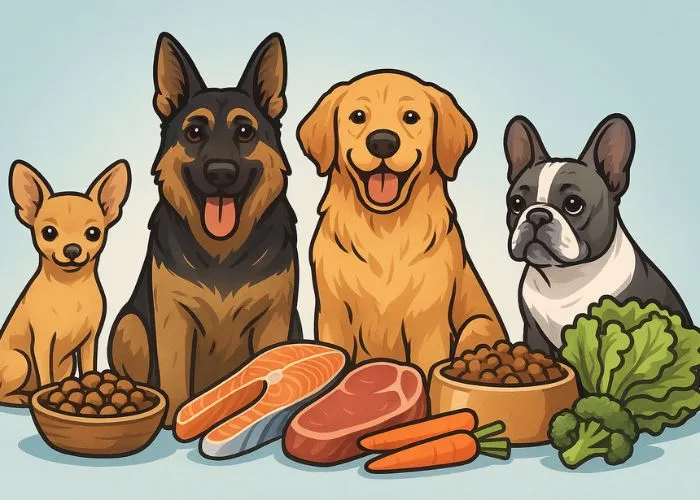Vaccinating your dog is one of the most important things you can do to ensure the health and longevity of your four-legged friend. In addition to protecting against serious and often fatal diseases, vaccination is a demonstration of care and love.
In this article, you will understand why vaccines are essential, how they work, which ones are mandatory and how to keep your immunization up to date.
Why Is Vaccinating Your Dog Essential?
Vaccines act as a protective shield against diseases that can be transmitted between dogs and, in some cases, even to humans. They prepare the animal’s immune system to recognize and fight infectious agents before they cause problems.
Diseases such as distemper, parvovirus, and rabies are highly contagious and can be fatal. Unfortunately, many of these diseases cannot be cured, but they can be prevented with vaccination. In addition, group vaccination helps control outbreaks and protect other dogs in the community, even those who cannot be vaccinated for medical reasons.
What Diseases Do Vaccines Prevent?
1. Canine distemper
Distemper is a highly contagious viral disease that affects a dog’s respiratory, gastrointestinal, and nervous systems. Symptoms include fever, nasal discharge, vomiting, diarrhea, and seizures. It is a leading cause of death in unvaccinated dogs.
2. Parvovirus
Caused by a resistant virus, parvovirus mainly affects puppies and young dogs. Symptoms include vomiting, bloody diarrhea, and severe dehydration. The disease is extremely aggressive and requires immediate treatment.
3. Rabies
Rabies is a zoonosis, meaning it can be transmitted to humans. This disease affects the central nervous system and is always fatal. In Brazil, vaccination against rabies is mandatory by law.
4. Leptospirosis
Transmitted by water and food contaminated with rodent urine, leptospirosis can cause fever, vomiting, and kidney and liver problems. It is a disease that can also be transmitted to humans.
5. Infectious Canine Hepatitis
This viral disease affects the liver and other organs, and can cause fever, abdominal pain, vomiting and even liver failure.
6. Kennel Cough
Similar to the flu, kennel cough is highly contagious and affects a dog’s respiratory tract. While it is not fatal in most cases, it can cause significant discomfort.
Vaccination Schedule: When to Vaccinate Your Dog?
The vaccination schedule should begin in the first few weeks of a puppy’s life. Below is an example of a basic schedule:
- 6 to 8 weeks: First dose of the multiple vaccine (V8 or V10).
- 10 to 12 weeks: Second dose of the multiple vaccine.
- 14 to 16 weeks: Third dose of the multiple vaccine and first dose of the rabies vaccine.
- Annually: Booster of multiple and anti-rabies vaccines
It is important to follow your veterinarian’s instructions, as he or she can adjust the schedule according to the animal’s health and history.
Mandatory and Optional Vaccines
Mandatory Vaccines
- V8 or V10: Protect against diseases such as distemper, parvovirus, infectious hepatitis and leptospirosis.
- Anti-rabies: Protects against rabies and is mandatory by law in Brazil.
Optional Vaccines
- Giardia: Helps prevent infection with giardia, a parasite that causes intestinal problems.
- Kennel Cough: Recommended for dogs that go to hotels, daycares or events with other dogs.
Although optional, these vaccines may be essential depending on your dog’s lifestyle.
The Risks of Not Vaccinating Your Dog
Not vaccinating your dog exposes him to unnecessary risks. Diseases such as distemper and parvovirus have high mortality rates and can spread quickly in urban areas. In addition, unvaccinated dogs can transmit diseases to other animals and even humans, such as rabies and leptospirosis.
Another important point is that many services, such as dog boarding and pet shops, require an up-to-date vaccination record. Without this, your dog may miss out on opportunities for socialization and care.
Vaccination and Well-Being: A Gesture of Love
Vaccination is much more than a health measure; it is an act of love and responsibility. By keeping your dog’s vaccinations up to date, you ensure that he or she can live a quality life, without pain or discomfort caused by preventable diseases. In addition, you contribute to public health by preventing the spread of diseases.
Tips to Make Your Dog’s Vaccine Easier
- Choose a good veterinarian: Look for a trustworthy professional to administer vaccinations and answer questions.
- Keep your vaccination record up to date: Always have your vaccination record on hand for appointments and trips.
- Create a routine: Set annual reminders for booster vaccinations.
- Associate the vaccine with something positive: Bring treats and toys so that the dog associates going to the vet with something pleasant.
- Avoid delays: Don’t let the vaccination schedule become out of date, as this can compromise your dog’s protection.
Conclusion
Vaccination is one of the fundamental pillars of your dog’s health and well-being. In addition to protecting him against serious diseases, it is a way to ensure that he lives a long and happy life by your side. Keeping his vaccination schedule up to date is simple and prevents future problems, both for your dog and the surrounding community.
Remember: a healthy dog is a happy dog. Show your love and care by protecting your four-legged friend with the necessary vaccinations. After all, he deserves the best!
Frequently Asked Questions
1. When should I start vaccinating my puppy?
From 6 to 8 weeks of age, following the schedule recommended by the veterinarian.
2. Do adult dogs need booster vaccinations?
Yes, annual boosters are essential to maintain immunity against disease.
3. Can I vaccinate my dog at home?
Ideally, vaccination should be carried out by a veterinarian, ensuring correct application and quality of the vaccines.
4. What are the symptoms of vaccine reactions?
Mild fever, fatigue, or pain at the injection site are common. Serious reactions, such as vomiting or difficulty breathing, should be reported to your veterinarian immediately.
5. Are optional vaccines really necessary?
It depends on the dog’s lifestyle. Dogs that spend time with other animals may benefit from vaccinations such as kennel cough.



